Programs and Services
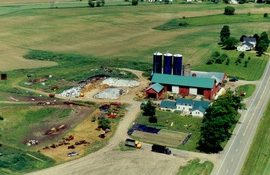
Agriculture
Our number one priority in working with the agricultural community is to conserve our natural resources and to keep our waters clean. We utilize a number of tools to accomplish this goal. Between 2010 and 2020 Jefferson County SWCD brought in over $3 million in state and federal funding on behalf of North Country farmers. These funds are used in Jefferson County to implement conservation practices that keep our farms environmentally sound.
Click here to learn more
Agricultural Environmental Management
AEM is a voluntary program that helps farmers make cost-effective decisions to improve efficiency and increase productivity while protecting and conserving our natural resources. The District helps ag producers develop comprehensive farm plans that identify resource concerns and potential grant projects.
A Tier 1 questionnaire is the first step. To get started, Click here. Send your completed Tier 1 to the District office: 25451 State Route 12, Watertown, NY 13601.
Agricultural Non-Point Source Grant Program
The District works with landowners to prepare grant proposals. If awarded, NYS Ag and Markets funds the project on a cost-share basis. All projects are geared toward protecting Jefferson County’s natural resources. Past projects include:
- Silage leachate control
- Access roads
- Waste storage
- Cover crops
- Barnyard runoff management
- Bedded Packs
- Stream Crossings
- Covered Barnyards
- HUA management
- Pasture Management
Soil Group Worksheets
If your town assessor recommends a soil group worksheet, contact our office. Once completed, the worksheet will be used in preparation of your agricultural assessment. Check with your local assessor to find out the deadline for the application (usually March 1st).
- Reduce taxes
- One-time preparation fee per parcel*
*unless there is a change in your parcel
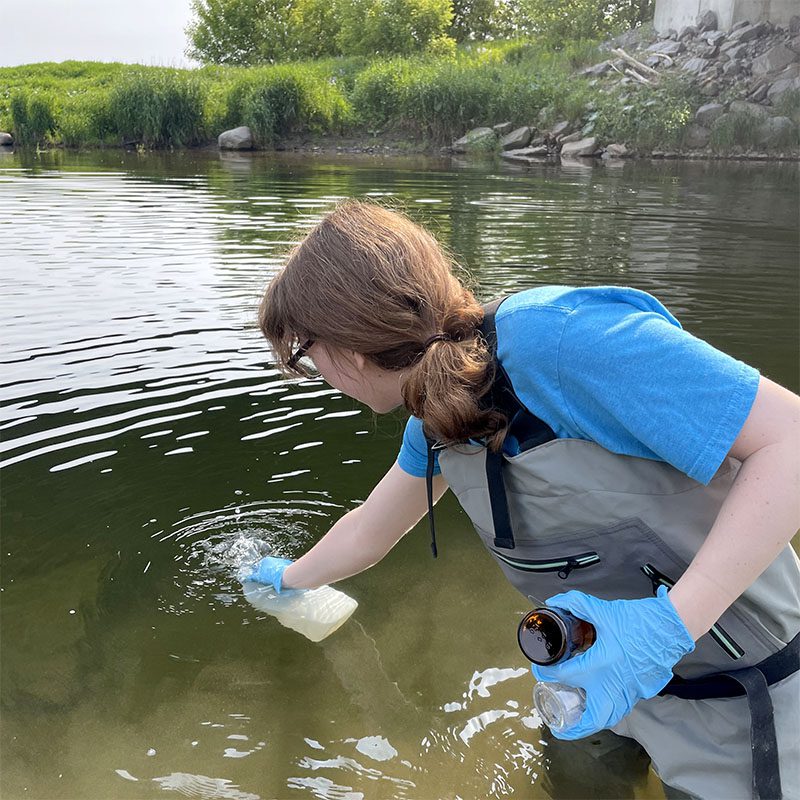
Water Quality
Water is a vital part of our identity in Jefferson County. Locals and tourists alike rely on clean water for boating, swimming, fishing, and drinking. The county boasts 256 miles of shoreline on Lake Ontario and the St. Lawrence River; 1,800 miles of rivers and streams; more than 150 inland ponds, lakes, reservoirs, and rivers; the Tug Hill Aquifer in the eastern and southern portions of the County; and over 40,000 acres of wetlands, swamps, and marshes. With such abundant and beautiful water resources surrounding us, it’s no wonder that our lives are so closely tied to the health of these waters.
Click here to learn more
Water Quality Coordinating Committee
With a round-table format agencies, practitioners, and engaged citizens meet quarterly at our office to discuss local water quality concerns, projects, and grant opportunities.
The committee’s mission is to assist and coordinate organizations and agencies to protect and improve the quality of both surface and groundwater for their intended uses, with emphasis on water-related issues, primarily the reduction of non-point source pollution.
Watershed Planning
Watershed and lake management plans identify data gaps, water quality risks, existing conditions, and suggest suitable best management practices (BMPs), oftentimes highlighting areas of critical need. Areas with existing watershed management plans often rank higher when submitting grant applications as the reviewers can see a documented need for the project.
There are a variety of existing watershed plans covering portions of Jefferson County, including the Great Lakes Action Agenda, St. Lawrence River Watershed Revitalization Plan, the Black River 9 Element (9E) Plan, and several local Lake Management Plans.
Grant applications awarding bonus points to projects supporting state-approved management plans have become increasingly common in recent years. As such, Jefferson County SWCD has begun work developing, updating, and supporting local watershed plans.
Recent work includes:
- Creation of a Waterfront Homeowner’s Guidebook
- Development of the Sandy Creeks 9E
- Involvement in the Black River Adaptive Management (BRAM) project
- Assisting in filling data gaps identified in the Hyde Lake Management Plan
Well Testing
The District no longer provides well-testing services. Please visit the NYS Health Department’s Website for information on recommended water testing frequency. Certified testing laboratories can be found here – https://apps.health.ny.gov/pubdoh/applinks/wc/elappublicweb/. Check “I am not a robot” at the top of the webpage, enter your state and county, then hit “view results.”
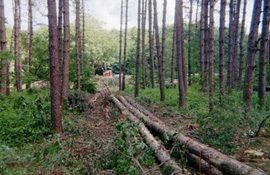
Forest Management
The District manages 5500 of the County forestlands. Management includes following short-term and long-term plans for: site preparation, weeding and/or timber stand improvement practices, harvesting timber, maintaining wildlife management, tree planting, natural regeneration, enhancing aesthetics, recreational use, etc. All efforts are made with conservation in mind and maintaining water quality protection.
Click here to learn more
Managing 5500 acres of County forest:
- Provide routine maintenance
- Lot signage
- Timber marking/sales management
- Property lines
- Monitor usage
Why is this important?
- Protect open space (undeveloped land)
- Promote wildlife
- Protect watersheds
- Provide recreational areas
- Ensure a local supply of timber
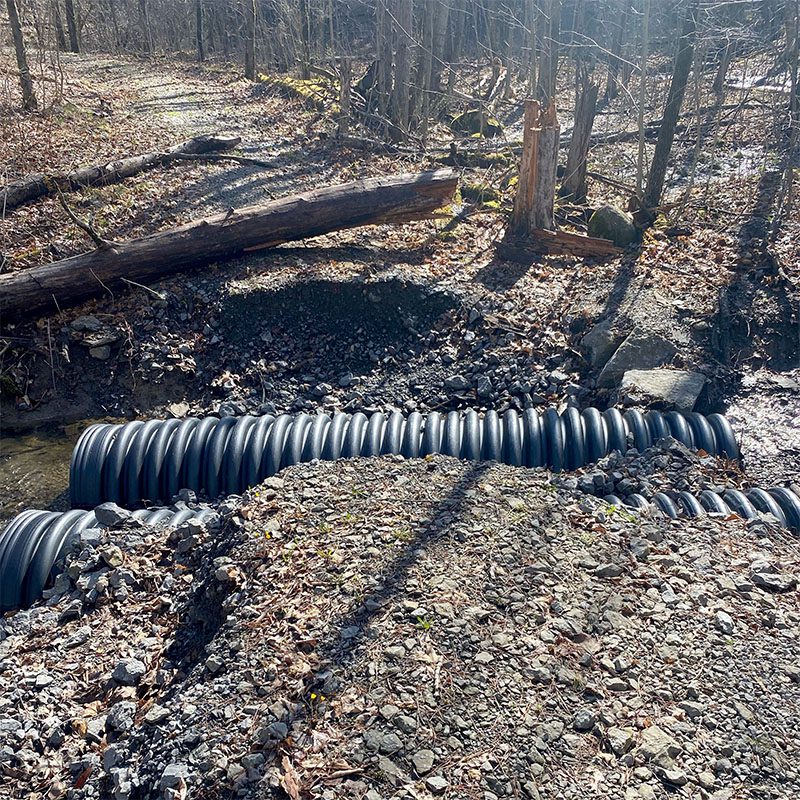
Stormwater
Stormwater is water from rain or melting snow that doesn’t soak into the ground, but runs off into waterways. As it flows, it picks up a variety of materials on its way including soil, animal waste, salt, pesticides, fertilizers, oil and grease, debris, and other potential pollutants. We provide services to municipalities and landowners to protect waterways by implementing stormwater management practices.
Click here to learn more
Jefferson County Stormwater Coalition
Jefferson County SWCD coordinates the Jefferson County Stormwater Coalition, a group of 9 municipalities regulated by NYS DEC’s Municipal Separate Stormwater Sewer System (MS4) permit. These municipalities work together to reduce stormwater and potential stormwater pollutants in their communities. For more information, or to learn public meeting dates, please visit the coalition’s website.
4-Hour Erosion & Sediment Control Training
Under the NYS DEC’s Stormwater Permit GP-0-25-001, all developers, contractors and subcontractors must identify at least one trained contractor from their company that will be responsible for implementation of the SWPPP, and have at least one trained contractor on site on a daily basis when soil disturbance activities are being performed. Also, developers must have a qualified inspector conduct regular site inspections in accordance with GP-0-10-001.*Qualified inspectors and trained contractors must have 4 hours of training in the principles and practices of erosion and sediment control endorsed by NYS DEC, SWCD, or CPESC, Inc. Training is good for three (3) years. Training is not required for CPESC, LA, and PE certified persons. Upon completion of the course, each participant will receive a NYS DEC Stormwater Training Number on a certificate and wallet card good for 3 years. This training does not allow contractors to conduct their own Qualified Weekly Inspections.
The District offers the training each spring. Training certificates are valid for three (3) years.
Culvert Sizing and Green Infrastructure Grant Assistance
The District offers culvert sizing and green infrastructure design assistance to municipalities throughout the county. Please reach out for details if your municipality is interested in these services.
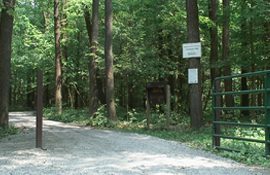
Recreational Trails
The District maintains and restores multi-use recreational trails throughout the County’s forestlands. Proper construction of trails is crucial for forest management and protecting our natural resources. Recreation is not the only goal. We must include proper drainage, minimize erosion, provide access for timber harvests, consider wildlife habitat, all while maintaining the natural beauty of the forest.
TRAIL MAPS | DOWNLOAD BROCHURE
Click here to learn more
Why improve trails?
- Control soil erosion
- Deter misuse of forest resources
- Protect Jefferson County’s natural resources
- Minimize destruction from motorized recreation
- Create an enjoyable, safe trail experience
- Promote economic development and tourism
We restore and maintain existing trails on County forest property throughout all four seasons.
We develop key trail links to business centers.
Please watch the short video clip below to learn more.
There are approximately 300 miles of roads open to ATVs in Jefferson County. Additionally there are approximately 36 miles of trails on Jefferson County reforestation lands open to ATVs.
We are continually maintaining, restoring, and building new multi-use trails on County reforestation lands.
Please follow all regulations when using trails on Jefferson County Forest.

Education
Although most of our work focuses on planning and implementation Jefferson County SWCD recognizes the benefits of youth and adult environmental education. By “planting the seed” of conservation today, we are nurturing the leaders and stewards of tomorrow. We believe that by sharing knowledge and empowering individuals with tools and understanding, we create ripple effects that lead to lasting change. Without this foundation of education, we cannot expect future generations to carry the torch, nor can we expect the community to embrace and implement sustainable practices. Together, we can build a brighter, greener future for all.
Click here to learn more
SW CARES
Storm Water – Carbon Awareness – Reforestation – Education for Students
SW CARES is a 4th-grade in-school program where Soil and Water staff review science terminology students have already learned (such as photosynthesis, erosion, and the water cycle) before drawing connections to new topics including the carbon cycle, greenhouse gasses, stormwater, and the importance of trees in absorbing and filtering water.
After an interactive multi-media presentation, students observe a watershed model demonstration showing the collective benefits of best management practices (BMPs), take a guided tour of school grounds to learn about their storm drains, and learn how to properly plant a tree seedling. Students receive free tree seedlings to plant along with educational materials.
SW CARES began in 2022 at Mannsville Elementary and has now expanded to five elementary schools across the South Jeff, Watertown, Carthage, and Brownville school districts.
Rain Barrel Workshop
In 2023 Jefferson County SWCD held its first annual rain barrel workshop. Held annually, this adult education workshop includes a presentation on the benefits and design of rain gardens and rain barrels and a set number of attendees each year receive a free rain barrel.
Location varies, and the event is usually held in the late summer or early fall. Watch our Facebook page for updates!
Macro Invertebrate Workshop
In 2024 Watertown’s SoZo Teen Center contacted our office as students had expressed interest in getting involved with the local environment. This led to the creation of our teen and youth macroinvertebrate workshop. Teens visited a local stream and learned the pros and cons of chemical and biological sampling; getting into the water themselves to collect samples, and using kicknets to survey for macroinvertebrates (aka “bugs”) living along the stream bottom. Students then practiced their identification skills, working as citizen scientists to determine if the species found were pollution-tolerant or intolerant.
This workshop can be scaled up or down for any age level. Please contact our office if you have a group that may be interested.
